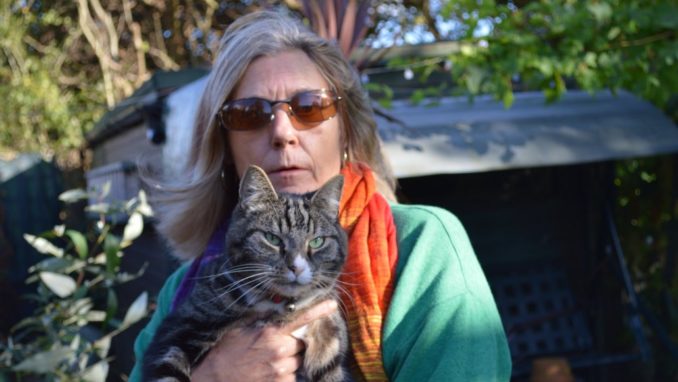
Dorothy is 92. She is a gentle soul. She has never hurt a fly in her entire life. It is now forty years since she lost her beloved Arthur. They had been together for 25 years when he died, the result of silicosis. She lives alone, in a small bungalow in Lytham St Annes, their dream home although a dream that Arthur never lived to see. She has a small pension and is content with her lot. Living through the war years taught her that it is foolish to hanker after small things when there are much larger matters to contend with.
Dorothy is a wise old owl. She has managed to save as well as pay her bills. (She has never seen a final demand in her entire life.) She has a few shares and £400 in Premium bonds which she keeps there just in case her gas fire needs replacing.
Not blessed with children Dorothy and Arthur have always had a special fondness for her two nieces. They are her next of kin. Her cat Tommy is her surrogate child. She muses gently, “I really don’t know what I will do if I ever lose him. He’s my baby.”
Unable to go shopping on her own, Dorothy depends on the kindness of her young neighbours, Alice and Fred, both in their late 70’s. They call for her list and get her provisions twice a week, and last thing at night Fred will pop his head around the door to check that everything is all right. A final glance is made at the windows and the back door to make sure that they are securely locked.
Although increasingly frail, Dorothy still has all her marbles. She is politically astute. A Conservative, she says that she was taught the value of hard work as a child and that she is very sad to see that so many of the younger generation appear to think they are entitled to things that they have never worked for. “They’re spoilt rotten,” she says. “I know this is something of a joke these days, but when we were young you didn’t set your heart on things you couldn’t afford. You were content with what you had, but woe betide anybody who tried to take it off you.”
Dorothy remembers the Referendum of 1975. Arthur voted No. Dorothy voted Yes. “We never agreed on that, but once the decision was made we both decided we had to live with it (and each other!) and get on with life. We never argued about politics.”
This time she voted Out. “I’ve seen what happened. We were sold a pig in a poke. They said it was all about selling to the Continent, which it was then. But I don’t want foreigners telling me what I can and cannot do in my own country.” She giggles, revealing dentures that appear a size too large. “There’s not a lot I can do these days so I suppose it really doesn’t make any difference who tells me what I can and cannot do.”
Dorothy is worried. On her monthly visit to the Health Centre for her Warfarin check she was shouted at by a group of teenagers on the pathway; “It wasn’t very nice. They called me a traitor and said that I have stolen their future. When I came home I cried. It’s not fair. I’ve paid my taxes all my life. It was my generation who founded the NHS. We paid for the schools and colleges that this country has depended on. My Arthur, (her eyes glisten with unalloyed affection), my lovely Arthur, he never claimed a penny, he was never out of work and his wages were always there on a Thursday. He never got to draw his Old Age Pension. It doesn’t seem fair, but then life isn’t fair is it? Still, you have to make the best you can.”
Her eye falls on a black and white photograph in a silver frame on the table beside her. “I miss him.” A world of sorrow encapsulated in three simple words. There is a tremble in her lips.
“Am I a bad person?” she asks.
No Dorothy, you are not a bad person. In fact, it is the likes of you that gave us a country to be proud of. In fact, it was one like you who first taught me the value of hard work and indeed of sacrifice. It was my own Grandmother who having lost three brothers in WW2 first said to me the words that are spoken once a year at Remembrance time:
“When you go home, tell them of us and say, “For your tomorrow, we gave our today.”
The world was different once upon a time. We cannot get that world back by referendum. It is something that has to be taught.
© Judas was paid 2016



